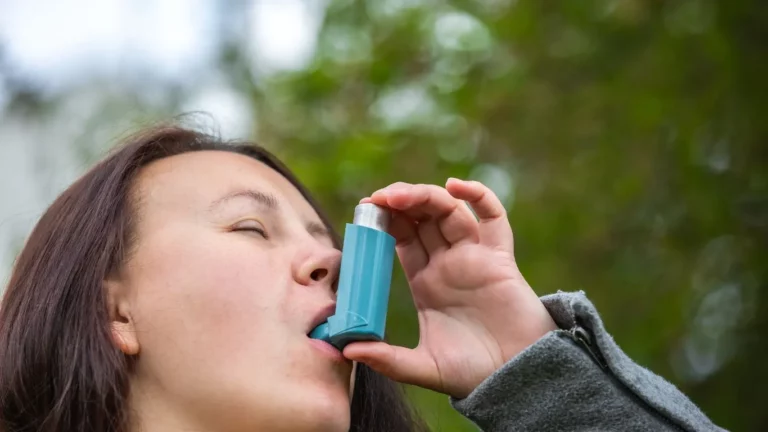Best Tea for Acid Reflux Relief: Naturally Soothe Your Stomach Today
If you’ve ever found yourself hunched over at your desk, clutching your chest because acid reflux decided to ruin your lunch break—yeah, you’re not alone. As someone who’s worked for years as a Medical Assistant in a busy Gastroenterology Clinic, I’ve seen firsthand how many people deal with this daily discomfort. Patients ask me all the time, “What tea helps acid reflux?”—and it’s not just out of curiosity. They’re looking for real relief, ideally something gentle, natural, and calming. So, let’s talk tea, reflux, and everything in between.
Understanding Acid Reflux From the Inside Out

Before we steep ourselves in tea talk (pun absolutely intended), it helps to understand what’s actually going on in your body when you’re dealing with reflux. In the clinic, I’ve explained this hundreds of times—acid reflux, or GERD (Gastroesophageal Reflux Disease), happens when stomach acid flows back into the esophagus. That backward flow irritates the lining, causing a burning sensation we all lovingly know as heartburn.
Some patients don’t even realize they have GERD until they come in complaining of a chronic cough, sore throat, or that strange taste that lingers after meals. Others? They’re regulars in the Tums aisle at the pharmacy. Reflux isn’t just about pain—it affects quality of life in sneaky, everyday ways.
Why Herbal Teas Are a Go-To for GERD Relief

Okay, so now that we know the enemy, let’s talk weapons. Over-the-counter meds help, sure. But more and more of my patients are curious about natural alternatives. And herbal tea tops that list. Why?
- Soothing properties: Herbal teas can calm the digestive tract and reduce inflammation.
- Caffeine-free: Most herbal teas don’t contain caffeine, which is known to trigger reflux symptoms.
- Hydration boost: Keeping your system hydrated can actually help minimize acid concentration in the stomach.
But—and this is a big BUT—not all teas are created equal. Some can make reflux worse. Think peppermint or spearmint, which relax the lower esophageal sphincter (not what we want). So, when someone asks “What tea helps acid reflux?”, I always guide them toward specific, reflux-friendly options.
Best Teas for Acid Reflux (Based on Real Patient Feedback)

1. Chamomile Tea
This one is probably my personal favorite to recommend. Chamomile isn’t just for winding down at night—it also acts as a mild anti-inflammatory and can help neutralize stomach acid. I’ve had patients come back weeks later thanking me for the tip because it helped them sleep through the night without waking up with that dreaded burn in their chest.
2. Ginger Tea
Ginger has been a digestive aid for centuries, and for good reason. A lightly brewed ginger tea (not too spicy!) can help move food through the digestive system faster, reducing the risk of acid backup. I usually suggest patients start with a small amount, especially if they have a sensitive stomach.
3. Licorice Root Tea (DGL)
This one’s a bit more niche, but in my experience, it can be a game changer. Deglycyrrhizinated licorice (DGL) doesn’t raise blood pressure like regular licorice, and it helps coat the esophagus lining. A few of our long-term GERD patients swear by it. It has a kind of earthy taste—not everyone’s cup of tea (pun again intended), but worth trying.
4. Slippery Elm Tea
Here’s one that most folks haven’t heard of unless they’re deep into herbal wellness. Slippery elm contains mucilage, which forms a gel-like coating that protects the esophagus from acid. It’s a bit gooey, texture-wise, but incredibly soothing. I remember one patient describing it as “a warm hug for my throat.” Honestly, couldn’t have said it better.
5. Marshmallow Root Tea
Yes, it sounds like dessert, but marshmallow root tea is nothing like the fluffy stuff in your cocoa. It has similar mucilage effects as slippery elm. It’s especially helpful for people whose reflux comes with throat irritation or coughing. A couple of cups a day can make a noticeable difference.
Teas to Avoid If You Have Reflux (Trust Me on This One)
Not all teas are safe bets, and I’ve seen patients actually worsen their symptoms by sipping on what they thought was healthy. So here’s a list I always caution them about:
- Peppermint Tea: It relaxes the LES (lower esophageal sphincter), making it easier for acid to travel upward.
- Spearmint Tea: Same problem as peppermint. Tastes great, not great for reflux.
- High-caffeine teas (like black or green): Caffeine can be a major trigger, especially when consumed on an empty stomach.
- Citrus-infused teas: Lemon, orange peel, and other acidic ingredients can irritate the esophagus.
Trust me, I’ve seen the “but I thought it was healthy!” face too many times. Reading tea labels is key. Just because something is “herbal” doesn’t automatically mean it’s good for GERD.
How to Brew the Best Tea for Acid Reflux Relief

Once you’ve figured out what tea helps acid reflux, the next step is making sure you brew it right. Sounds simple, but trust me, I’ve seen patients unknowingly turn a soothing tea into a reflux trigger by making it too strong or adding the wrong extras.
When I chat with folks in the clinic, I always say: “Gentle is key.” That goes for ingredients, temperature, and steeping time. You want the tea to help, not to irritate your esophagus further. Here’s how to do it right:
- Stick to mild strength: Don’t overdo the tea bags or loose leaf. One bag or one teaspoon per cup is enough.
- Use warm water, not boiling: Super hot liquids can aggravate reflux symptoms. Let your boiled water cool for a minute before pouring.
- Skip the sweeteners: Sugar, honey, even stevia can sometimes trigger reflux, especially on an empty stomach. If you must sweeten, do it lightly.
- Drink it slowly: No gulping. Sip gently, like you’re having a moment with yourself. Bonus: it’s calming too.
And here’s a little tip from personal experience—I always tell patients to enjoy their reflux-friendly teas about 30 minutes after eating, not right after meals. That gives your digestive system a head start without adding extra pressure.
Pairing Tea with Lifestyle Changes: A Powerful Combo

Tea alone can help, but if we’re being real, it’s not a magic fix. What really makes a difference (and I’ve seen it time and time again) is pairing it with a few smart lifestyle tweaks. At the clinic, we always took a holistic approach to managing reflux, and I’d encourage the same here.
1. Elevate Your Head While Sleeping
This one’s a classic, and it works. Gravity becomes your friend when your upper body is elevated. I’ve had folks try everything from wedge pillows to stacking regular ones. Either way, it helps keep acid down where it belongs—especially if you’re someone who gets reflux at night.
2. Watch Your Meal Timing
I get it—we’re all busy. But eating too close to bedtime is a reflux recipe. I usually recommend patients give themselves a 2-3 hour buffer between dinner and lying down. Your digestive system will thank you. Plus, you’ll sleep better.
3. Ditch the Tight Waistbands
Sounds silly, but tight pants and belts can put pressure on your stomach, pushing acid up. I once had a patient who figured this out by accident—he switched to looser jeans and said his reflux improved within days.
4. Keep a Reflux Diary
This one’s underrated. Tracking what you eat, how you feel, and when symptoms strike can help you find sneaky triggers (including teas that don’t sit well with you). It’s also super helpful to share with your GI doc or nutritionist if things get more complicated.
Understanding the Role of Stress in Acid Reflux

This might surprise some folks, but yep—stress can absolutely fuel acid reflux. I’ve had countless conversations with patients where their symptoms flared during a tough week at work or some family drama. The gut-brain connection is real, and stress messes with digestion big time.
When you’re stressed, your body produces more stomach acid and digestion can slow down. Combine that with lying down after a meal or skipping lunch because you’re busy, and boom—hello reflux.
So what can you do? Besides sipping calming teas like chamomile or lemon balm, here are a few ways my patients (and honestly, I too) manage stress to help their gut out:
- Breathing exercises: Just 5 minutes of deep breathing can make a huge difference.
- Light walks after meals: Helps digestion and clears the mind.
- Journaling: Especially helpful if you notice emotional eating or anxiety-linked flares.
- Yoga or stretching: Relaxes both your body and your gut.
It’s amazing how often I’ve heard someone say, “I thought it was all about food, but turns out stress was my biggest trigger.” It’s not always easy to admit that, but once you connect the dots, you’ve got a whole new level of control.
Common Tea Myths People Still Believe (Let’s Clear ‘Em Up)
Now, before we wrap up this section, let’s bust a few myths I’ve heard way too often at the front desk or during consults. Some of these have been floating around social media and well-meaning forums, but they’re not always reflux-friendly advice.
“Green tea is healthy, so it must help GERD.”
Sure, green tea has antioxidants, but it also contains caffeine and can be acidic. For some, it’s tolerable in small amounts—but many find it worsens their reflux. It’s one of those “your mileage may vary” teas. Try with caution.
“You can drink any herbal tea if it’s natural.”
Big nope. Just because it’s labeled “herbal” doesn’t mean it’s safe for GERD. We already talked about mint, but other culprits include hibiscus and citrus blends. Always check the label—and if you’re unsure, bring it to your next appointment. I’ve helped plenty of folks vet their pantry teas right in the office.
“Drinking tea right after a big meal will help you digest better.”
Not necessarily. In fact, it might make things worse. Right after a heavy meal, your stomach’s already working hard. Adding liquid—especially if it’s hot—can dilute stomach acids and mess with the digestive flow. Give it 20–30 minutes before sipping.
Long-Term Strategies for Managing Acid Reflux

We’ve covered a lot of ground so far—what tea helps acid reflux, how to brew it right, and how small lifestyle changes can go a long way in managing symptoms. But, let’s get real for a minute. Acid reflux doesn’t usually go away overnight. It’s a chronic issue for many people, and it’s all about long-term management. The teas and tips we’ve discussed can absolutely help, but they’re just part of the puzzle.
Here’s the thing: managing acid reflux is like maintaining a garden. You’ve got to care for it consistently, keep an eye on triggers, and take the right steps to keep things under control. So, what does this look like for the long haul?
1. Consistent Healthy Eating Habits
One of the most important things I’ve learned from working in a Gastroenterology Clinic is that food plays a huge role in acid reflux. I’ve seen patients who’ve drastically improved their symptoms simply by tweaking their eating habits. And no, it doesn’t mean you have to give up every food you love, but it does mean making some smarter choices. Here are a few habits that can really help:
- Smaller, more frequent meals: Instead of stuffing your stomach with a large meal, try eating smaller portions throughout the day. This can help prevent overproduction of stomach acid.
- Less fatty, fried, or spicy foods: These can trigger reflux by relaxing the lower esophageal sphincter (LES) or increasing stomach acid.
- Incorporate reflux-friendly foods: Try adding more whole grains, vegetables, and lean proteins to your diet. Oatmeal, for example, is a great breakfast option that’s both soothing and filling.
Now, don’t get me wrong—there’s no one-size-fits-all diet for reflux. But keeping a food diary (we talked about this earlier) can help pinpoint what works and what doesn’t. And of course, sipping on some of those calming teas between meals can really complement these healthy eating habits.
2. Weight Management
Let’s talk about weight for a second. For many people, excess weight can put added pressure on the stomach, which can make acid reflux worse. In fact, I’ve worked with numerous patients who found that losing even a few pounds made a noticeable difference in their symptoms. This doesn’t mean you need to go on some extreme diet or hit the gym every day, but even small adjustments in lifestyle can help.
Regular, moderate exercise is key—not just for weight management, but for overall digestive health. I’ve seen patients who took up walking or swimming a few times a week and felt a lot better. It’s not about drastic weight loss, but about taking care of your body and avoiding the added pressure that comes with carrying extra pounds.
3. Managing Triggers and Stress
If there’s one thing I’ve learned working with reflux patients, it’s that stress and triggers go hand in hand. Stress is often a hidden culprit when it comes to flare-ups. In fact, I can’t tell you how many times I’ve had patients say, “I didn’t even think about how stressed I was until it started affecting my reflux.”
That’s why managing stress is one of the most important long-term strategies for acid reflux. It’s not just about drinking chamomile tea (although that’s a big help). It’s about finding ways to de-stress that work for you. For some, it’s yoga or deep breathing exercises; for others, it’s simply taking regular breaks from work or learning to say no to extra commitments.
Another aspect of this is avoiding known reflux triggers. Some common ones include:
- Coffee and caffeine: While not everyone will be affected, many people find that caffeine worsens their reflux.
- Alcohol: Wine, beer, and spirits can relax the LES, leading to reflux.
- Chocolate: I know, it’s a tough one, but it’s a common trigger.
- Acidic foods: Tomatoes, citrus, and other acidic foods can trigger symptoms for many people.
It’s all about trial and error. Keep track of what sets you off and try to manage those triggers as best you can.
Natural Supplements for Acid Reflux Relief
Besides tea and lifestyle changes, many patients I’ve worked with have also turned to natural supplements for additional support. Some of these might help reduce inflammation, promote healing, or improve digestion. As with anything, though, it’s important to consult with a healthcare provider before starting any new supplement. Some popular ones include:
- Probiotics: These good bacteria can help improve digestion and may balance the gut microbiome, reducing the likelihood of reflux.
- Apple cider vinegar: It sounds counterintuitive, but some people find that a small amount of diluted apple cider vinegar can help balance stomach acid.
- Deglycyrrhizinated Licorice (DGL): This is the same licorice root mentioned earlier but without the harmful side effects. It can soothe the esophagus and help prevent acid from rising.
- Aloe Vera: Aloe has anti-inflammatory properties and may help soothe the digestive tract. Just be sure to use the kind that’s safe for internal consumption.
Always check in with your doctor or a nutritionist before adding supplements, though. Everyone’s body reacts differently, and it’s better to be cautious when trying something new.
When to Seek Medical Help for Acid Reflux
Most of the time, acid reflux can be managed with lifestyle changes, tea, and some smart choices. But there are times when you need to see a doctor. If you find that your symptoms are persistent, worsening, or affecting your ability to eat or sleep, it might be time to get checked out.
Here are a few signs that you should reach out to your healthcare provider:
- Frequent heartburn or regurgitation: If it’s happening more than twice a week, or if over-the-counter antacids aren’t working.
- Difficulty swallowing: A feeling that food is stuck in your throat or chest.
- Unexplained weight loss: This could be a sign of something more serious, like an esophageal condition.
- Persistent nausea or vomiting: It could indicate a more severe issue.
Sometimes, it’s necessary to undergo diagnostic tests or medications, especially if reflux is interfering with daily life. Don’t hesitate to seek help if you’re unsure.
References
Disclaimer: This article is intended for informational purposes only and does not substitute for medical advice. Always consult with a healthcare provider before starting any new treatment or making changes to your current regimen.

Camellia Wulansari is a dedicated Medical Assistant at a local clinic and a passionate health writer at Healthusias.com. With years of hands-on experience in patient care and a deep interest in preventive medicine, she bridges the gap between clinical knowledge and accessible health information. Camellia specializes in writing about digestive health, chronic conditions like GERD and hypertension, respiratory issues, and autoimmune diseases, aiming to empower readers with practical, easy-to-understand insights. When she’s not assisting patients or writing, you’ll find her enjoying quiet mornings with coffee and a medical journal in hand—or jamming to her favorite metal band, Lamb of God.







